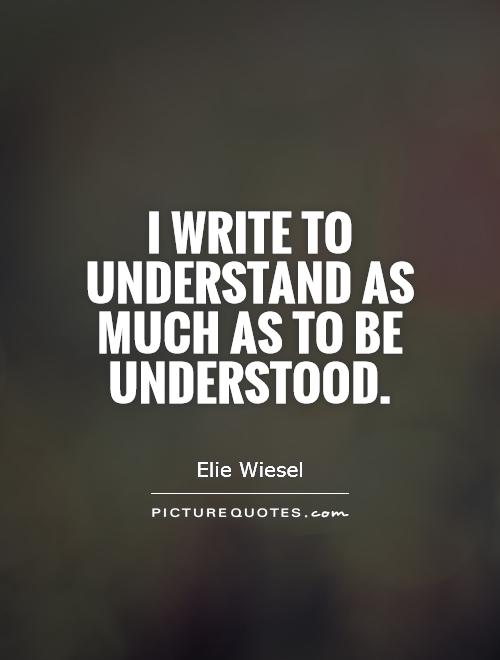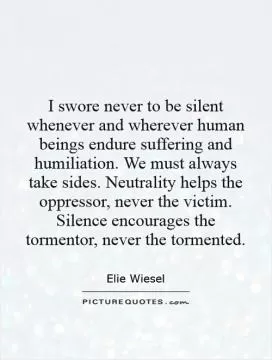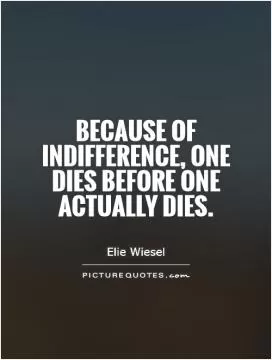I write to understand as much as to be understood

I write to understand as much as to be understood
Elie Wiesel, a Holocaust survivor and Nobel laureate, once said, “I write to understand as much as to be understood.” This quote encapsulates the essence of Wiesel’s writing and the profound impact it has had on readers around the world. Wiesel’s works, which often explore themes of suffering, faith, and the human experience, serve as a means for him to make sense of the horrors he witnessed during the Holocaust, while also providing a voice for those who perished.Wiesel’s writing is deeply personal and reflective, drawing on his own experiences as a survivor of the Auschwitz and Buchenwald concentration camps. Through his words, he seeks to come to terms with the unimaginable atrocities he witnessed and endured, grappling with questions of faith, morality, and the nature of humanity. By putting pen to paper, Wiesel is able to process his trauma and find a sense of catharsis in sharing his story with the world.
At the same time, Wiesel’s writing serves a larger purpose beyond his own understanding. Through his powerful narratives, he sheds light on the horrors of the Holocaust and the importance of remembrance and bearing witness. By sharing his story, Wiesel not only seeks to be understood by others but also to educate and inspire future generations to never forget the atrocities of the past.
Wiesel’s writing is a testament to the power of storytelling as a means of both personal healing and collective remembrance. Through his words, he invites readers to bear witness to the suffering of the Holocaust and to reflect on the enduring legacy of that dark chapter in human history. In writing to understand as much as to be understood, Wiesel demonstrates the transformative power of literature in confronting the darkest aspects of the human experience and finding hope and meaning in the face of unimaginable tragedy.












 Friendship Quotes
Friendship Quotes Love Quotes
Love Quotes Life Quotes
Life Quotes Funny Quotes
Funny Quotes Motivational Quotes
Motivational Quotes Inspirational Quotes
Inspirational Quotes